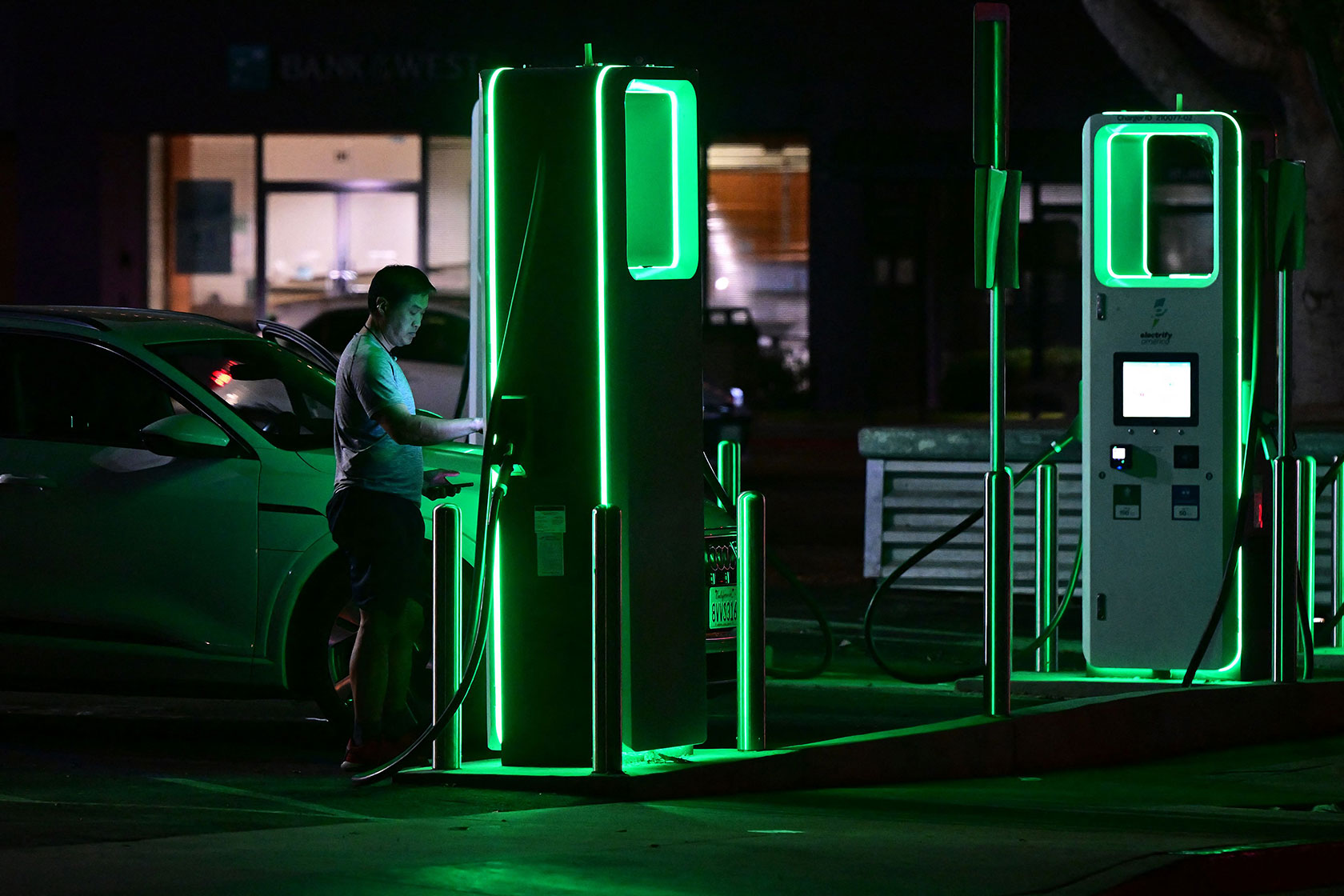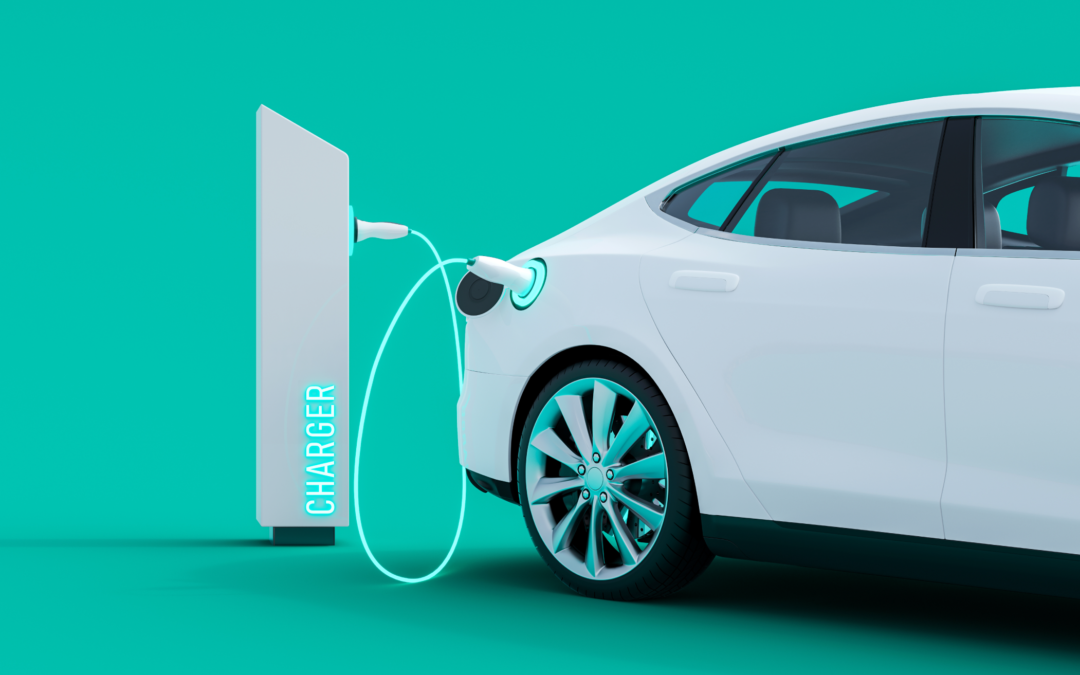The Most Reliable Sources to Buy EV Charging news and Stay Informed
The Most Reliable Sources to Buy EV Charging news and Stay Informed
Blog Article
Why 2024 Is a Game-Changer for EV Charging: Fads and Insights
As we come close to 2024, the electrical vehicle (EV) charging landscape is set for considerable change, driven by the proliferation of ultra-fast billing stations and developments in wise billing technologies. The consolidation of sustainable power sources alongside desirable federal government policies is likely to redefine the sustainability and ease of access of EV infrastructure.

Growth of Ultra-Fast Charging Terminals
Just how swiftly are ultra-fast charging stations transforming the electrical car landscape? The spreading of ultra-fast charging terminals is a crucial development in the EV field, significantly boosting the convenience and usefulness of electric lorry possession. These stations, capable of delivering charging speeds up to 350 kW, can recharge an EV's battery to roughly 80% in as low as 15-30 mins, effectively minimizing range anxiousness among customers.
The development of ultra-fast charging infrastructure is being driven by both exclusive and public investments, showing a critical change towards sustainable transport remedies. Significant auto manufacturers and energy companies are collaborating to install these stations along city centers and significant freeways, producing a considerable network that sustains long-distance travel and everyday usage.
In addition, developments in battery innovation are complementing this development, enabling lorries to maximize the increased charging speeds. As the variety of ultra-fast billing terminals remains to climb, they are anticipated to play a vital role in speeding up EV adoption, cultivating a transition towards a cleaner and even more lasting future. This growth not just improves individual experience yet also solidifies the feasibility of electric lorries as a mainstream transport choice.
Advances in Smart Charging Technology
With the enhancing assimilation of digital innovation in the electrical car sector, developments in smart billing modern technology are substantially enhancing the effectiveness and ease of EV charging. Smart billing systems utilize connectivity and data analytics to optimize the charging process, permitting customers to charge their vehicles when power rates are cheapest and demand on the grid is minimal.

Interoperability is one more important advancement, as new requirements and procedures enable various EV designs and charging terminals to communicate effortlessly. This enhances individual experience by giving a lot more obtainable billing choices throughout numerous networks. Inevitably, the advancement of smart charging modern technology represents a substantial action towards a more lasting and user-friendly EV ecosystem, leading the way for wider fostering and assimilation into life.
Integration of Renewable Resource Sources
The integration of renewable resource resources right into EV charging facilities is ending up being progressively essential as the demand for sustainable solutions grows. This trend not only aids decrease the carbon impact related to electrical car charging yet additionally enhances grid strength by advertising decentralized power manufacturing.
Solar and wind power go to the forefront of this assimilation, with numerous billing stations currently incorporating photovoltaic panels or being constructed in closeness to wind ranches. These sustainable sources can generate tidy electrical power, providing a sustainable power supply for EVs. Furthermore, advancements in power storage space technologies, such as batteries, facilitate the reliable storage space of excess energy produced during peak production hours, ensuring that billing terminals can run effectively even when sustainable generation is reduced.

Expansion of Charging Infrastructure
As electric car (EV) fostering speeds up, the growth of billing facilities has become an essential emphasis for stakeholders throughout the automobile and power sectors - EV Charging news. The need for a robust and easily accessible charging network is necessary to support the expanding variety of EVs when traveling and to ease array stress and anxiety among consumers
In 2024, we are observing significant financial investments from both private companies and public entities check my site targeted at improving the billing landscape. This consists of the installment of fast-charging stations along freeways and in metropolitan centers, which can charge EVs in a portion of the moment contrasted to traditional battery chargers. In addition, partnerships in between automakers and energy providers are promoting the implementation of cutting-edge billing solutions to fulfill diverse customer requirements.
In addition, developments in technology are resulting in smarter billing systems that enhance energy circulation and decrease expenses. The assimilation of these systems is essential for accommodating the predicted increase in demand as more customers transition to electric movement. The development of charging facilities not only supports the EV market however also plays a vital duty in attaining broader sustainability goals, making it a crucial element in the evolution of transport.
Government Plans and Motivations
Federal government plans and rewards are progressively shaping the landscape of electrical car (EV) adoption and billing framework advancement. Federal governments globally are acknowledging the immediate requirement to transition to cleaner transport options, leading to the execution of different efforts targeted at increasing EV fostering. These policies usually consist of tax credit scores, refunds, and grants for customers and services that buy electric lorries and billing stations.
Along with guide monetary incentives, several governments are establishing enthusiastic targets for EV sales and mandating the installment of charging infrastructure in brand-new developments. For circumstances, a number of countries have actually devoted to terminating inner burning engine automobiles within the following years, producing a feeling of necessity that drives both consumers and manufacturers toward electric choices.
Furthermore, public-private partnerships are emerging as an essential component of these initiatives, helping with financial investment in billing networks and ensuring widespread access. By lining up regulative structures with economic motivations, federal governments are not just promoting a favorable atmosphere for EV adoption yet also attending to issues connected to range anxiousness and charging schedule. This durable plan landscape is readied to make 2024 a critical year in the transition to electrical movement.
Verdict
The year 2024 is readied to revolutionize the electric car charging landscape with the spreading of ultra-fast billing terminals, innovations Discover More in smart charging modern technologies, and the integration of renewable resource resources. The development of charging facilities, reinforced by encouraging government policies and rewards, will deal with array anxiousness and improve the appeal of electrical lorry possession. Jointly, these growths will certainly promote a lasting and accessible environment for electrical lorry fostering, ensuring a robust future for the sector.
As we approach 2024, the electrical automobile (EV) charging landscape is set for significant improvement, driven by the expansion of ultra-fast charging terminals and improvements in wise charging innovations. The spreading of ultra-fast charging stations is an official website essential development in the EV market, dramatically boosting the convenience and feasibility of electrical lorry ownership. Wise billing innovations promote remote monitoring and administration, making it possible for individuals to schedule billing sessions using mobile applications.
Federal government plans and motivations are progressively shaping the landscape of electric car (EV) adoption and charging infrastructure development.The year 2024 is established to transform the electrical vehicle billing landscape via the proliferation of ultra-fast charging terminals, innovations in smart charging innovations, and the assimilation of eco-friendly energy sources.
Report this page